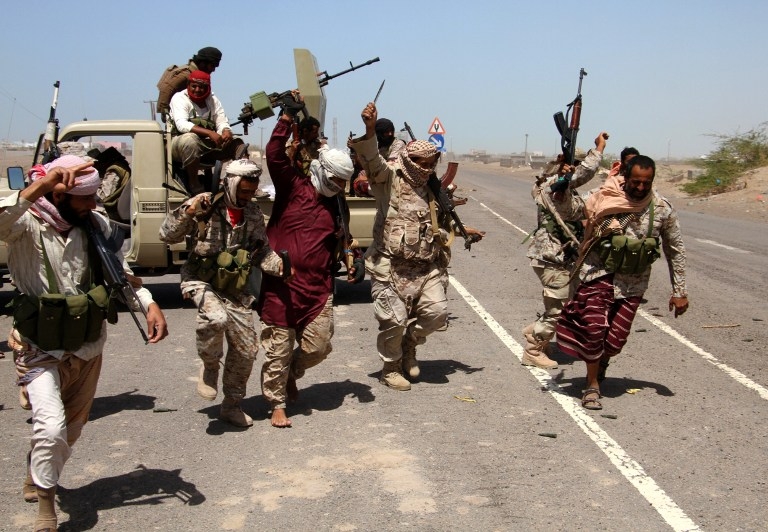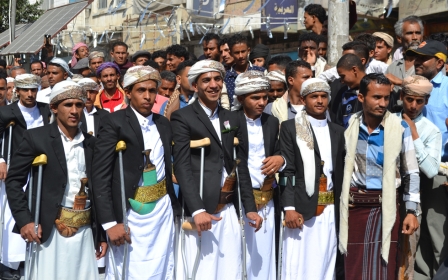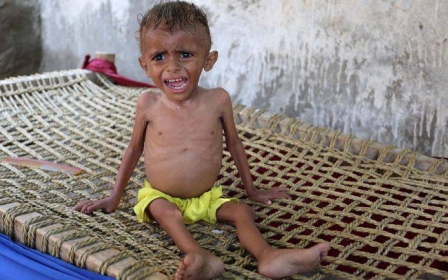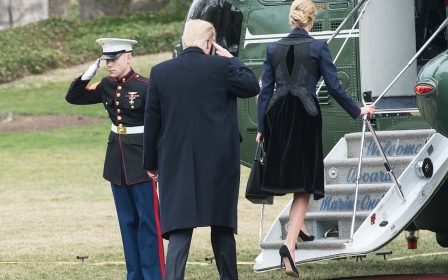Yemen loyalists retake historic Red Sea coastal town

Yemeni government forces took full control of the Red Sea coastal town of Mokha on Friday after weeks of deadly fighting with Houthi rebels and their allies, a spokesman said.
Before the 19th Century, Mokha was Yemen's main port and export hub for coffee grown in the highlands and its historical symbolism meant it was fiercely fought over.
"We have done with the Battle of Mokha," armed forces spokesman Mohammed al-Naqib told AFP, adding that the rebels had been forced to flee the town.
Another loyalist military source confirmed that government forces were in "full control".
The rebels had put up fierce resistance in the town. Twenty-four rebels and eight loyalist troops were killed in fighting on Wednesday alone.
Tens of thousands of civilians were trapped in the fighting. Many of them had sought refuge in Mokha after fleeing their homes in towns to the south as government forces pushed up the coast.
The UN humanitarian coordinator in Yemen, Jamie McGoldrick, said late last month that "scores of civilians" had been killed or wounded by shelling and sniper fire around Mokha or by air strikes carried out in support of government forces by a Saudi-led coalition.
He said most services in the town had ground to a halt, including the mains water supply.
The UN also expressed concerns civilians in Mokha had been deliberately targetted by the Houthis during the battle for control of the port.
"Credible reports indicate that Houthi-affiliated snipers shot at families attempting to flee their homes in Houthi-controlled areas," the statement said.
As the fighting shifted along the coast, the International Committee of the Red Cross (ICRC) said that civilians were already caught up in the fighting in the Red Sea port city of Hodeida, as well as in the towns of Taiz and Dhubab.
The aid agency pressed called for civilians to be allowed to leave for safer areas, and called for the wounded to be given access to medical care, in line with international law.
"We stand ready to deliver much needed aid to the civilian population," said Robert Mardini, ICRC regional director for the Near and Middle East.
Next target Hodeida
Government forces had already taken Mokha's docks earlier this month but there was heavy fighting in other parts of the town before the Houthi rebels withdrew north towards the main Hodeida, which they still control.
"We now preparing for the second phase of the battle for the coast, which is to advance towards Hodeida," the loyalist armed forces spokesman said.
Before the government launched its offensive on January 7, the Houthi rebels controlled virtually all of Yemen's 450km Red Sea coastline.
But with the support of the Saudi-led coalition, the loyalists have made their biggest advances in months in heavy fighting that has seen more than 400 combatants killed.
Despite nearly two years of coalition air and ground support, government forces had previously been almost entirely confined to the south and areas along the Saudi border.
The rebels hold the capital Sanaa and most of the northern and central highlands as well as the coast around Hodeida.
The coalition has enforced an air and sea blockade of rebel-held territory that prevented the rebels making any use of Mokha's small docks.
All deliveries of basic goods are under UN supervision and those by sea pass through Hodeida making the port city vital to the rebels.
Late last month, the rebels carried out a rare seaborne attack on a Saudi frigate on patrol in the Red Sea, killing two sailors.
Last year, there were missile attacks from rebel-held territory on two US warships in the Red Sea and a United Arab Emirates vessel contracted to the coalition.
Washington responded with missile strikes.
Humanitarian crisis
The Red Sea is one of the world's most important shipping lanes linking to the Mediterranean through the Suez Canal and Washington has deployed warships to ensure it is kept open despite the conflict raging onshore.
The United Nations has called repeatedly for a ceasefire in the government's offensive to allow the delivery of desperately needed relief supplies.
UN aid chief Stephen O'Brien warned last month that Yemen could face famine this year if no immediate action is taken.
Nationwide, 17.1 million Yemeni's are now struggling to feed themselves and 7.3 million of those are in need of emergency assistance, UN agencies reported on Friday.
UN envoy Ismail Ould Cheikh Ahmed has criticised President Abd Rabbuh Hadi for refusing to discuss a political transition plan that would pave the way for government of national unity.
Hadi, who spends most of his time in neighbouring Saudi Arabia because of insecurity in second city Aden where his government has its base, has rejected the plan, which would see him cede most of his powers.
New MEE newsletter: Jerusalem Dispatch
Sign up to get the latest insights and analysis on Israel-Palestine, alongside Turkey Unpacked and other MEE newsletters
Middle East Eye delivers independent and unrivalled coverage and analysis of the Middle East, North Africa and beyond. To learn more about republishing this content and the associated fees, please fill out this form. More about MEE can be found here.




